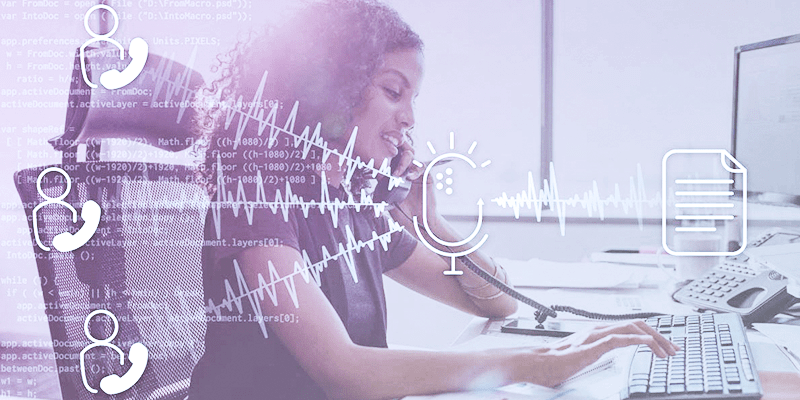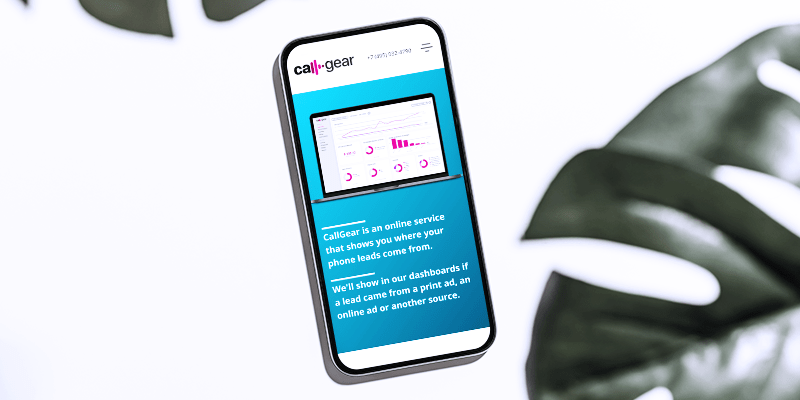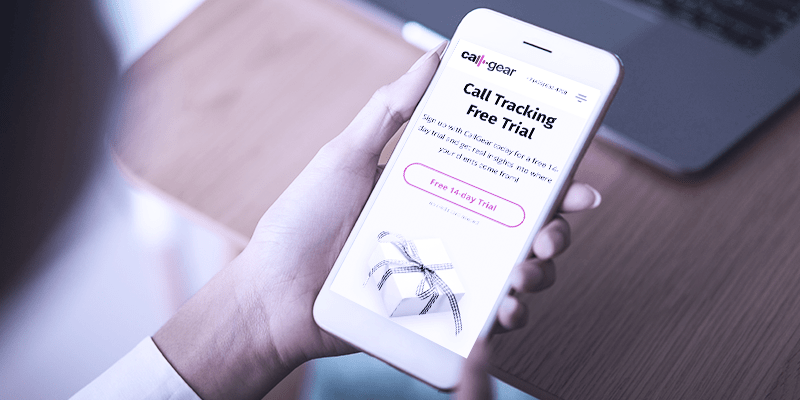Call Monitoring for Businesses and Call Centers
Businesses often overlook the importance of call monitoring. When someone mentions monitoring, the only uses managers think of are employee assessment or agent performance.. But today, call monitoring or listening is being used for a wide range of objectives by companies everywhere.
We’ve created this post to tell you all about call monitoring and how your business can benefit from this feature.
What is Call Listening or Call Monitoring?

Call monitoring is the act of listening to phone calls. It can refer to live call monitoring, or listening to call recordings. As you’ll find out soon, call monitoring can serve many purposes, including quality control, compliance, performance evaluation, and developing marketing strategies.
Companies can benefit from call monitoring services from many providers, or get it as a part of a call management or call tracking system like CallGear.
Essentials of Call Monitoring Software

Like we said, a call monitoring system can be a standalone service or part of a package. Whether you choose CallGear or another call management solution, look out for the following features:
Call whispering: Supervisors can provide live comments while the call is going on to assist agents. The caller can’t hear the supervisor’s comments and is unaware of their presence.
Call barging: A manager can monitor calls and join the conversation. Both the agent and the caller will be able to hear and interact with the manager during call barging.
Call recording: Creates a recording of the whole call for analysis. Software like CallGear also provides speech analytics and automatic call transcriptions.
Call reporting: Real-time and historical reports provide additional data to drive actionable analytics. You can make better business decisions when you have a complete picture of your call history.
Call Monitoring Use Cases
Let’s discuss some use cases to show you the potential of call monitoring.
Aiding Sales
Call monitoring has many uses for the sales department. To begin with, managers can assess the performance of trainees by listening to their calls. You can use call recordings to capture the best scripts and use them as training material. Call monitoring is also helpful when you want to make sure your agents are handling your valuable customers in the best manner.
You can also use call monitoring for:
- Assessing lead quality
- Improving overall sales workflow
- Assorting calls according to follow up priority or other factors
- Evaluating sales scripts
Creating Better Marketing Campaigns
Marketing departments sometimes depend on phone call monitoring to check the quality of leads they’re generating. Monitoring calls can also let you discover key trends and patterns in customer behavior and help you better manage your campaigns. The marketing team can listen to calls to derive insights to make marketing campaigns more effective.
Call Center Call Monitoring
Call monitoring goes a long way to ensure your reps are handling customers in the best way. You can monitor calls to see if agents follow the script and other directives. Features like call whispering let you help out agents when they need assistance from experts. Call barging is also useful when you want to cut in and handle the conversation without transferring the line.
Call monitoring is used by customer support managers to evaluate agent performance. It can even help you determine other key KPIs related to performance.
Training and Coaching
Call monitoring and call recordings help you train your staff to fill in skill gaps. New employees can listen to live calls to gain experience and see how customers are handled. You can use the call recordings as training material, presenting the best interactions to new employees.
Meeting Internal Procedure Standards
You must have set up some internal processes and standards that your agents must follow. With call monitoring, you can find out if your agents are achieving those standards. You can identify and analyze many things through call monitoring:
- Tone and pitch of agents
- Use of authorized greetings, questions, and closings
- Questions to be asked
- Response and hold times
- Call completion times
In short, you can analyze every aspect of the interaction between the agent and the customer. Call monitoring makes meeting your standards easy and simple.
Compliance and Legal Requirements
Call monitoring is not required by law but can help you avoid legal hassles arising from disputes. You can present the call recordings as evidence to prove your innocence or make a point.
Before you monitor calls, be sure to find out the call monitoring, recording, and call center laws in your jurisdiction. Based on your location, you may need permission from your customers to monitor or record calls.
You can find your own use cases after you start experimenting with call monitoring. Please let us know if you have any innovative uses in mind so that we can share with our readers!
Tips for Effective Call Monitoring
Here are some tips so that you can get the most out of your call monitoring. We suggest you first create a plan and then devise steps to meet your objectives. Below are some tips you can follow:
1. Create goals: Before you monitor calls, lay out your expectations and objectives. Determine the aspects, KPIs, and metrics you want to evaluate and how you’re going to do it. Also, make sure to save room for changes that might come your way unexpectedly.
2. Notify customers: You’ll need to notify your customers that the call can be recorded or monitored, based on your local laws.
3. Develop scripts: Having a script makes it easy for your agents to achieve desired standards and stay on course. Give some autonomy to your agents so that they can refine the script based on the needs of the customer.
4. Monitor uncommon calls: You don’t always need to monitor all calls that come your way. You should focus on atypical calls: calls that took a long time, or finished too early, calls that went too good or too bad, and so on. Monitoring these calls will help you identify difficulties and best practices.
5. Make call recordings: You may not always have time to monitor live calls. In that case, you can use call recording and analyze calls at a later period.
Consider a Call Management Platform for Call Monitoring

Call management and virtual PBX solutions like CallGear provide advanced features along with call monitoring. You can even run reports to determine your key metrics and agent performance. You can also avail speech analytics and automatic call transcriptions in a matter of minutes. So, if you’re thinking of monitoring your calls, consider choosing a reliable solution like CallGear.